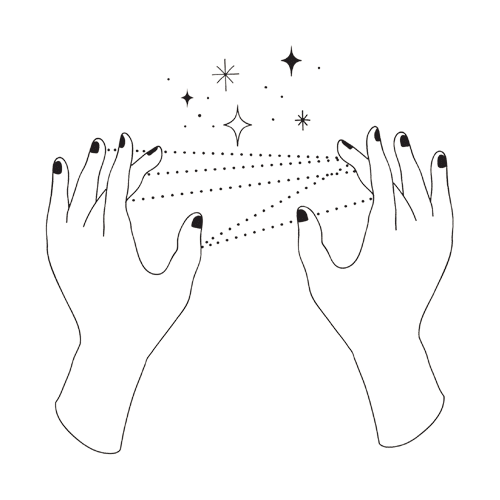Stress and anxiety are often understood interchangeably, but what is actually the difference between stress, anxiety and depression?
Stress and anxiety are, despite their mixed use, distinct in their symptomatic presentations.
Depression has a different presentation altogether and ranks highest in terms of mental health disturbance.
It is important to not use these terms in place of each other or assume they all are covered by the larger aegis of issues in mental well-being. This is so that individuals suffering from the diagnoses get the correct help they need in coping as the method of treating each can be as distinct as their presentation.
To understand the difference between these, let us start with some simple definitions.
- Stress is a state of activation to an event that requires resources beyond our capacity to cope. In other words, it is the physiological, psychological, and emotional response to that event.
- Anxiety is a state of arousal, of heightened emotional activity of fear or dread of what may happen. Once again, the symptoms are both physical and mental.
- Depression is, instead, the opposite of arousal. It is quite literally a state of ‘depressing.’ That’s when the system shuts down and we end up going into a shell, replete of energy and mood, incapable of feeling the regular breath of emotions we feel in the regular course of events. So, as a rule of thumb, going from stress to anxiety to depression involves a journey from activation to arousal to shutting down.
Click to find out more about my stress management counselling services, online or in-person
The symptoms of stress, anxiety and depression
The symptoms of stress
Stress as a reaction appears in many ways, including:
- Irritation
- Increased arousal
- Crankiness
- Inability to sit still
- Desire to be in control
- Exhaustion
- Inability to sleep or rest
- Poor cognitive skills
- Distorted sense of self and reality
- Incapacity to be in the present moment
- Body ache, back ache, headache
- Worry
- Lack of concentration
‘The greatest weapon against stress is our ability to choose one thought over another’.
– William James
The symptoms of anxiety
Anxiety can usually be identified by some of the following symptoms:
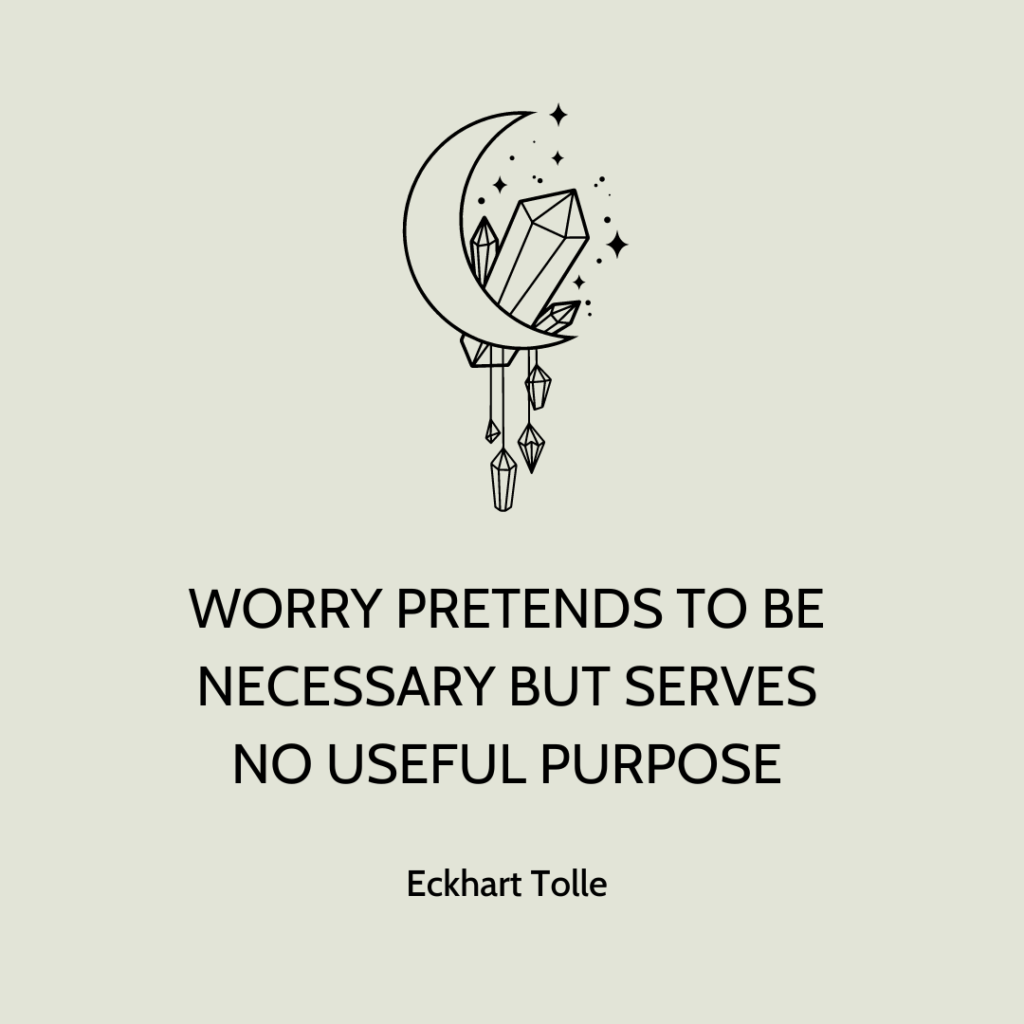
- Agitation
- Restlessness
- Increased heart rate
- Sweating
- Trembling
- Rapid breathing
- Restless body
- Darting eye movement
- Fear
- Dread of the future
- Imagining the worst
- Flight of fantasy
- Living in the imagined future
- Churning in the stomach or gut
- Headaches or other somatic symptoms
- Magnification of events
Click to find out about my anxiety counselling services and book your first consultation.
The symptoms of depression
Depression, on the other hand, tends to be identified by the following symptoms:
- Low energy
- Flat mood
- Blunted affect
- Glazed eyes
- Poor appetite
- Disturbed sleep
- Helplessness/hopelessness
- Negative attribution style
- Cognitive disturbance
- Despair
- Fatigue
- Loss of self-esteem
- Worthlessness
- Pessimism
- Lack of belief
- Living in the past
- No hope for the future
- Disconnection from present
- Disassociation and numbness
‘Depression is being constantly colour-blind, and constantly being told how colourful the world is‘
– Atticus
The difference in symptoms of stress, anxiety and depression
The fundamental difference between stress, anxiety and depression in terms of the symptoms is the degree of dysfunction they cause and the lack of perceived control that is felt by the individual. It is important to note that while there is an overlap, they are by no means the same. Each of these conditions may signal poor mental health.
For example, stress can be managed without help or medication. Conversely, if stress is left unabated it can be a silent and slow decimator of both mental and physical well-being.
Similarly, if anxiety is managed well with a good toolbox of skills and techniques, it can slowly recede into a phenomenon the individual feels some agency over.
Depression needs to more seriously be addressed in a professional setting. The same goes for chronic anxiety, as treatment over time can prove extremely beneficial in restoring well-being, reducing symptoms, and alleviating long-term health risks.
How stress and anxiety are linked
Stress and anxiety are considered a natural part of the body’s reaction to perceived threats or danger. Their original ‘purpose’ comes from the time of our ancestors.
The evolutionary reason for stress and anxiety was to ensure that we are ready to deal with what is coming our way. We are meant to be able to ‘release’ this activation once the threat has passed or, more importantly, only have this activation when there is a real threat.
In the modern world, we are not always able to de-escalate, and preceding this, we are also not experts at threat identification and understanding or teaching our bodies if there is a real reason to prepare ourselves for threat or experience a ‘stress response’ (Hans Selye, 1956) also known as the flight or fight response.
Simply put, stress can be something more short-term. While long-term stress also persists, it would then be diagnosed as something more chronic. Stress is the body’s physiological and the mind’s psychological response to a recognized threat. Over time, it can become a generalized response.
Anxiety may or may not have a clear, identifiable trigger. Stress beings a generic feeling of unhappiness while anxiety brings forth nerves or nervousness. Stress puts us into a state of being overwhelmed while anxiety puts us into worry about what may happen and a state of dread.
They influence each other most deeply by co-existing to the degree that we cannot distinguish one from another. Both can create a state where we do not feel like ourselves anymore. This is when the co-morbidity with depression comes into play. The feeling of not being able to identify with our own personality or ‘missing the self,’ especially if the original nature of the person has not been one to be so wired or triggered.
The main differences between anxiety and depression
The main commonality between anxiety and depression is that they are mental health conditions that are debilitating and involve the mind. While they do influence each other and can lead to one another, the felt experience is very different.
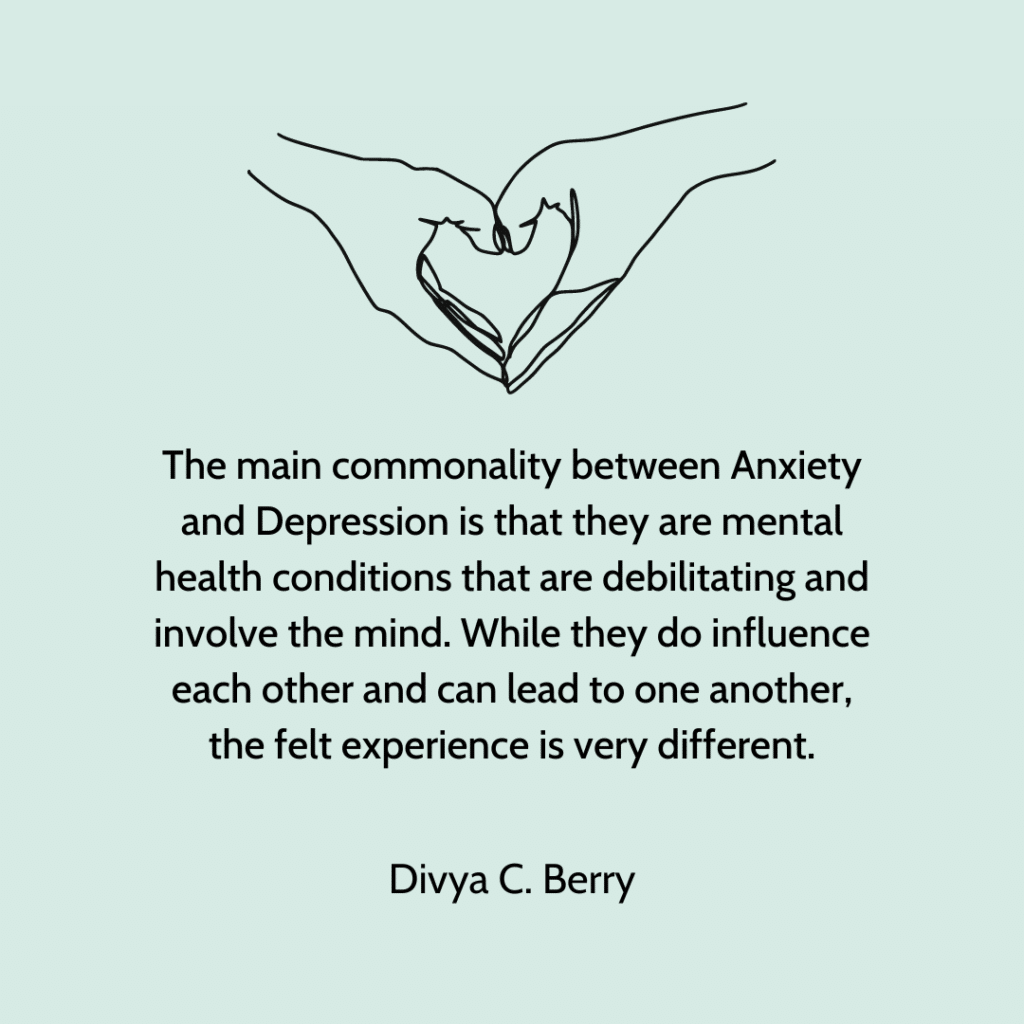
Depression is identified as feelings of sadness, helplessness and despair. It performs as a chronic unhappiness with life’s situations and the inability to see any hope. In this, depression relays in the past, stokes regret and does not ‘let’ the person feel any positivity about the future – partly because the present is so drained of any joy.
Anxiety is a feeling of apprehension, impending dread and doom. It is a chronic worry about what may happen and the helplessness of not being able to do anything about it.
Read more: how gestalt therapy can help with anxiety
In this sense, anxiety is a state of being constantly ‘on’ in imagining and catastrophising about the future and what can go wrong.
Simply put, depression involves the feeling of internal scrutiny of the self, worthlessness, and even guilt. Anxiety involves dread, worry, and a feeling of panic at not being able to deal with them but not necessarily self-deprecation.
Persistent anxiety can over time bring shame and feelings of guilt, but those may be more linked to the incapacity to move on once insight has been gained about the validity of the stressor.
Depression, depending on the level of it, can involve such deep feelings of sadness that the person cannot separate the self from their environment. The responsibility of it becomes more like a chicken and egg situation: which came first becomes meaningless.
Anxiety is a lower form of ‘worry’ and a feeling of not being at ease is actually one of the symptoms of depression. However, consistently feeling symptomatic anxiety as a result of depression may then lead to triggering an anxiety disorder. In this, there is a reciprocal impact.
The symptoms that are shared would perhaps be more bodily functions like loss of sleep and feeling drained, as well as emotions like irritability and personality changes.
It is important to remember the main difference is in the states of arousal: Depression slows the system down while anxiety revs it up.
How to overcome stress, anxiety and depression
Building a coping repertoire is an essential part of counseling and therapy. Coping is defined as the thoughts and behaviors mobilized to manage internal and external stressful situations (Algorani & Gupta, 2022).
What type of coping or ‘overcoming’ we do is our coping style or repertoire. Coping has broadly been categorized as one of four types. You can either use them in combination with one another, or be inclined to one type. The types of coping are the following:
- Problem-focused, which addresses the problem causing the distress,
- Emotion-focused, which is about reducing the negative emotions associated with the problem,
- Meaning-focused, where we try to use mental or cognitive strategies to derive meaning from the situation,
- Social- and support-seeking, where an individual reduces stress by seeking succor from others (Folkman & Moskowitz, 2004).
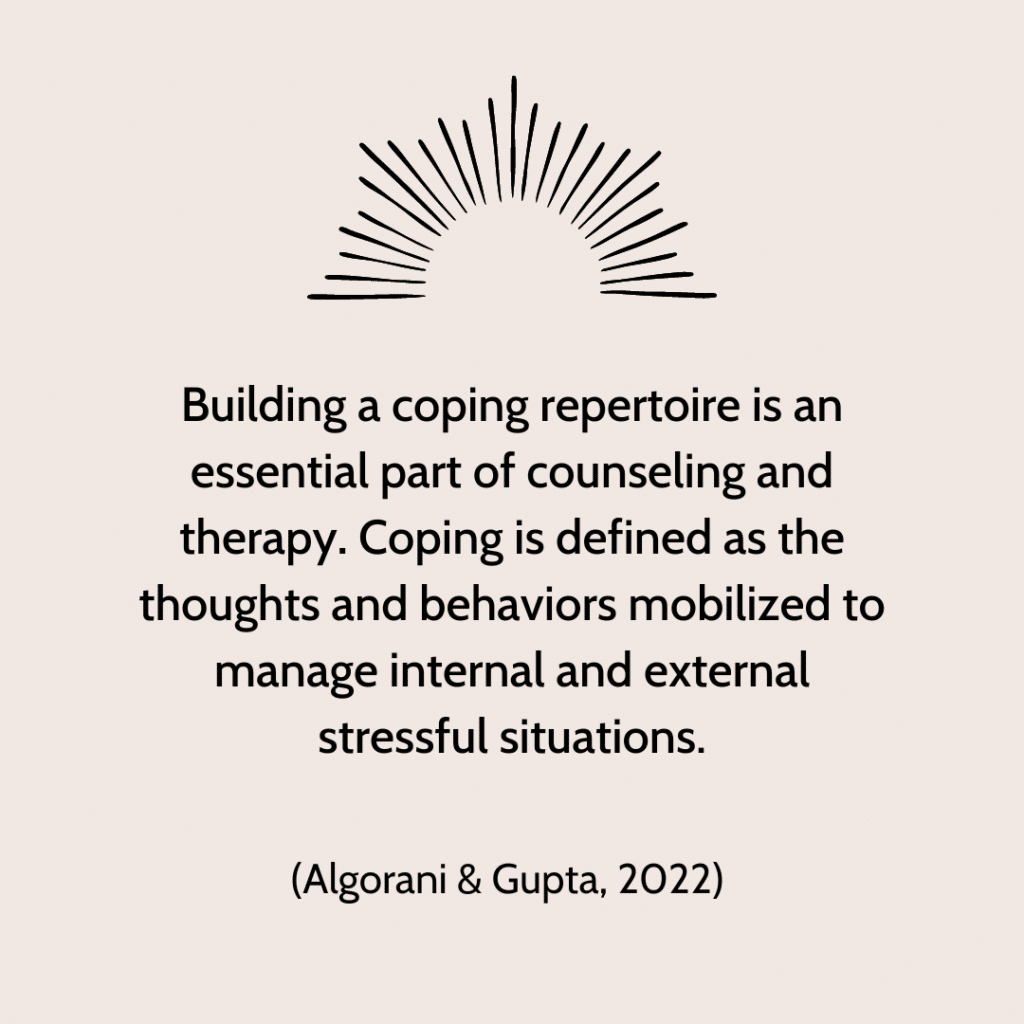
In summary, coping involves adjusting, adapting, tolerating, and making meaning of challenges that come our way.
It is vital for good mental and physical health that this is done while keeping one’s own sense of self and equilibrium.
If the methods employed take away more than they conserve or preserve, we will feel a deep sense of imbalance and that will lead to the arrival of new stressors.
For people predisposed to anxiety and/or depression, this can lead to new mental health concerns.
The aftermath of coping usually involves a mandatory period of rest that all individuals need no matter how good their ‘coping repertoire’ is. This resting period is for the body to diffuse tension and deescalate from its state of threat response and acting from a frame of danger. It is also a way to be able to rest and not ‘be coping.’
Health coping mechanisms are of course imperative. They mark the difference between continued poor mental health and breaking through a crisis. However, it is equally vital to have a period where no coping is employed, if this is possible.
The tension of chronic stress states, unsettled/uneasy/anxious thoughts, overthinking, and deep worry can be worked through well in therapy. Counseling also provides a deep holding place for depressive ideas and feelings of helplessness.
The counseling room is the place to bring these feelings, especially as we feel unable to cope with them on our own.
The other perspective is, of course, the need to be aware that we do not have to deal with them alone and that trained professionals are available to provide the right kind of support.
These conditions, especially if it is an anxiety disorder (which differs in intensity from regular anxiety and is identified by diagnostic criterion) or major depression (the same diagnostics apply) need medication and support from a clinical medical practitioner along with therapy and counseling.
You can overcome anxiety with help
The starting point of how therapy and counseling work is to provide the first listening ear for issues that have felt intensely personal and debilitating, as anxiety and depression often do. It is a way to take the first steps of coming out of being alone with these thoughts of dread and worry.
‘Empathy fuels connection,’ in the famous words of Brene Brown. The beginning of therapy is being heard with empathy in a space that is professional and dedicated to this purpose. It is the space where you are invited to know your thoughts and feelings, no matter how big, bad, gruesome, or difficult they may seem to you.
It is important to understand the difference between stress, anxiety and depression to be able to cope with and treat it in the best way.
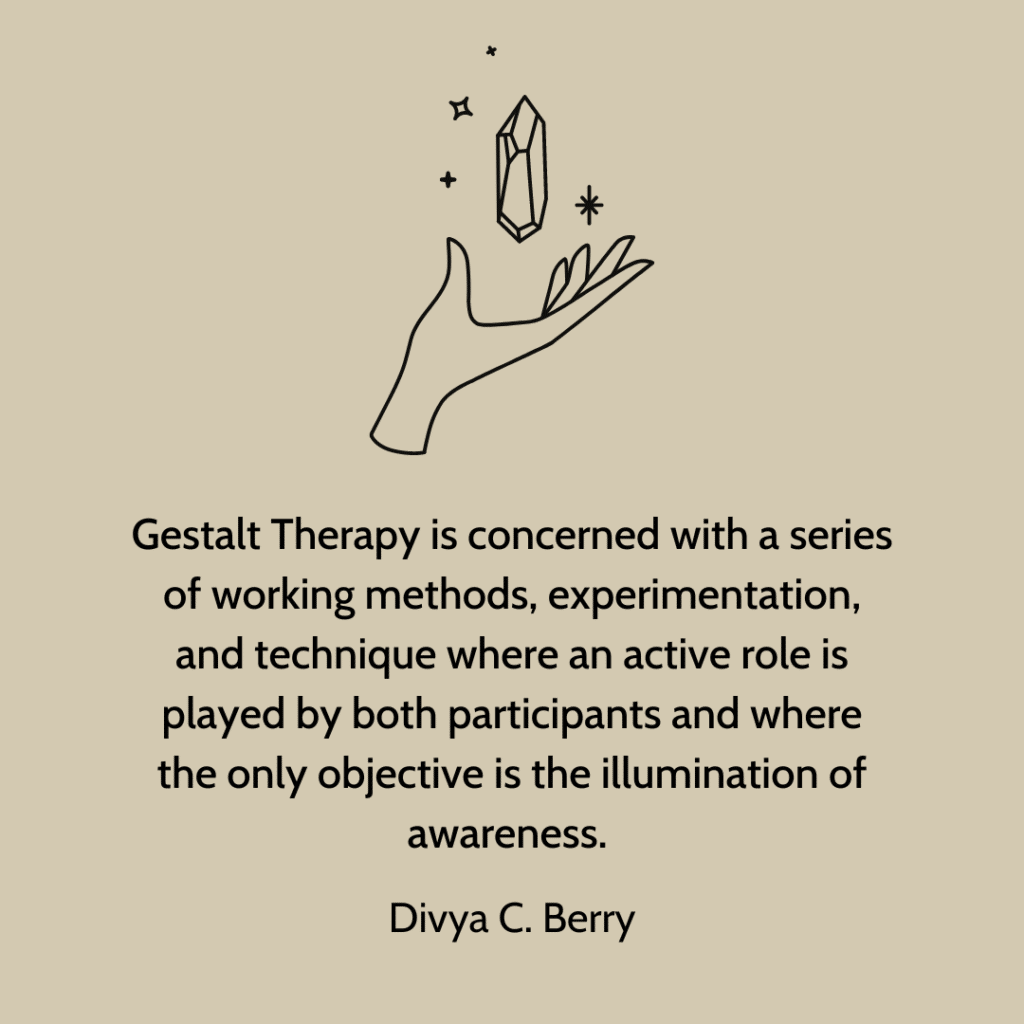
Gestalt therapy and its practice are concerned with a series of working methods, experimentation, and technique where an active role is played by both participants and where the only objective is the illumination of awareness. Awareness is the purpose of this therapy, and going further, how the individual will now use and channel this awareness to make the changes they need in their lives. This is whether that is to achieve victory over chronic anxious thoughts, to learn to talk ourselves down from an elevated state of stress, or to deal with the factors that make us feel hopeless and helpless.
In Gestalt therapy, the idea is to first listen and then start clearing the path together. A path that may be strewn with old experiences that are clogged and difficult to make sense of. In this clearing, clarity emerges and we are able to become more aware and better resourced to deal with our own inner mental demons.
Overthinking and repetitive thoughts of dread which are often the hallmark of anxiety, as well as helplessness and sadness which characterize depression, can indeed feel demonic and difficult when deal with in the long term.
Come to therapy to learn to differentiate symptoms, and start to label and own the emotions and thoughts that you feel. In my therapy sessions, you will be able to deal with your emotions without the over-simplistic attribution of the blame game or finding cause and effect.
Walk the path instead of understanding your journey and give yourself the perspective of seeing it from fresh eyes, with a lens of self-responsibility as well. Most of all, come to therapy to feel heard and understood, to know yourself better, and become more resilient in building your own toolbox to cope with the challenges that exist and the ones to come.
